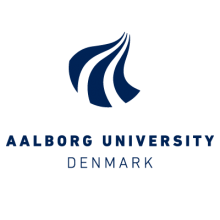Today, many in the academy take for granted that higher education is “international”. But how did we get to a point where university lecturers accept as a default the need to internationalise research and teaching? In 2007, I started interviewing Danish lecturers about their experiences with English-language education and discovered that internationalisation shifts much more than the medium of instruction.
‘International’ science
Science is often presented as universal in scope. “I’ve taught from the same notes in three continents,” a lecturer may point out with pride. This suggests that scientific knowledge can travel seamlessly around the world because it applies to all contexts, regardless of geographic, national and linguistic differences.
Within most subject areas, successful scholars are those who reach out to a global audience, which is achieved by publishing in English, participating in international conferences and engaging in multi-partner research collaboration.
But what is the effect of scientists’ desire for global visibility within their field? In non-English-speaking Europe, we see a clear trend towards English-language publishing, which happens at the expense of writing in the native language. Research findings will thus be printed in “international” journals based mainly in the US or the UK, which influences what scientific knowledge can be presented.
Specialists from agricultural science and education, for instance, produce knowledge that reflects the unique conditions in a specific country or institution. Yet journal editors and reviewers may insist on interpretations inspired by an Anglo-American perspective. Hence, a reviewer will request that the intercultural encounter between a German student and a Danish teacher be discussed within a post-colonial framework simply because this is the preferred model in the UK.
University teachers “internationalise” course contents by abandoning local references. Business lecturers explain how they use US textbooks because Danish material seems irrelevant to an international class. This creates a distance between all non-American students and their native environment. Graduates who have learned only about US business cases could thus find their theoretical knowledge difficult to apply to Polish or Chinese companies.
Mobility as the new normal
Many scholars find work outside their home countries, and science’s “flat world” idea leads them to expect a smooth transition into their new environment. Yet international recruits experience difficulties when meeting with local students and staff. Sources of tension include differing perceptions of teacher/student roles, classroom management and communications.
This foregrounds a need to acknowledge the differences between educational cultures instead of assuming that mobility comes easy. All successful academic migrants “localise”, which means they acquire a practical mastery of the norms and routines tied to teaching and learning within a specific institution, department or discipline.
Academics working in their home countries will often “internationalise” their CVs through short-term stays at prestigious universities abroad. In Denmark, this type of mobility favours English-speaking countries, with 47 per cent of all PhD sojourners visiting the US, the UK, Canada, Australia or New Zealand in 2019. A likely explanation is the acceptance of English as the scientific lingua franca, which means that many young scholars find it critical to demonstrate strong English skills.
International or English only?
But perhaps the key characteristic of global academia today is a worldwide recognition that English is the default medium of higher education and research. In non-English-speaking Europe, the most successful “internationalisers” are Dutch, Danish and Swedish universities because they can offer a wide selection of courses taught in English.
Yet “internationalisation through English-isation” comes at a price, with English taking over at institutions that have traditionally provided instruction in a variety of languages. Coinciding with the spread of English is a decline in the number of students specialising in German, French or Russian. Perversely, universities’ desire to “internationalise” often transforms institutions from multilingual into bilingual or monolingual spaces.
How often do international education experts ask: would you like to teach and learn in a foreign language? Rarely, because the assumption is that all are comfortable working in English. My interviews, however, suggest something else. To the non-native speaker, English-language teaching means that lecturers’ classroom communication becomes tied to language proficiency, causing some to speak of ideas and messages “lost in translation”.
At the receiving end, knowledge transmission is influenced by students’ linguistic ability. Many of those attending international classes are not English specialists and may require support in the form of glossaries, visual aids or time to formulate a question. This can explain the “silence” that researchers frequently attribute to international students.
Coping with change
So, how do we manage the challenges arising from internationalisation? First, we should aim for a truly global outlook rather than an Anglo-American one masquerading as international. One way to accomplish this is by checking the socio-cultural origins of authors included in a course syllabus and ensuring that a variety of geographies are represented.
Second, institutions must recognise the learning needs of mobile scholars. All educational cultures have distinctive rules that should be identified and explained to new members of staff.
Finally, all “international” universities must address the language question. In international education, all participants are co-creators of “global English” − so accents from Austria to Zambia should be treated as equal to that of a native speaker.
Hanne Tange is an associate professor in English and global studies at Aalborg University in Denmark. She is the author of Teaching Practices in a Global Learning Environment.
Register to continue
Why register?
- Registration is free and only takes a moment
- Once registered, you can read 3 articles a month
- Sign up for our newsletter
Subscribe
Or subscribe for unlimited access to:
- Unlimited access to news, views, insights & reviews
- Digital editions
- Digital access to THE’s university and college rankings analysis
Already registered or a current subscriber? Login









